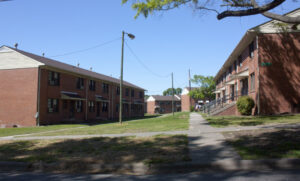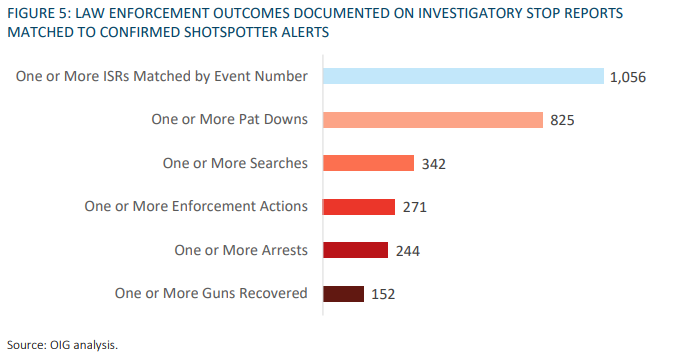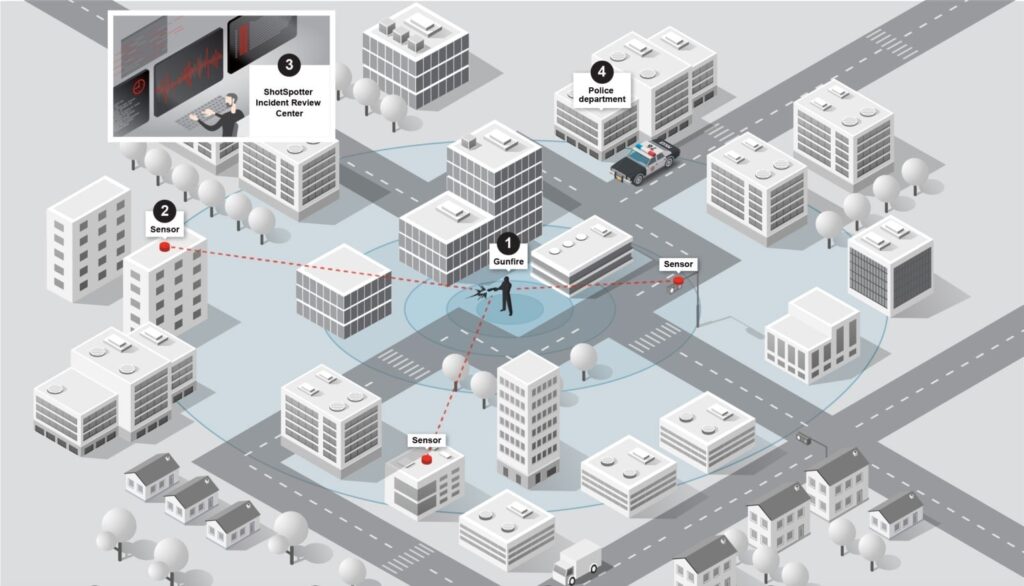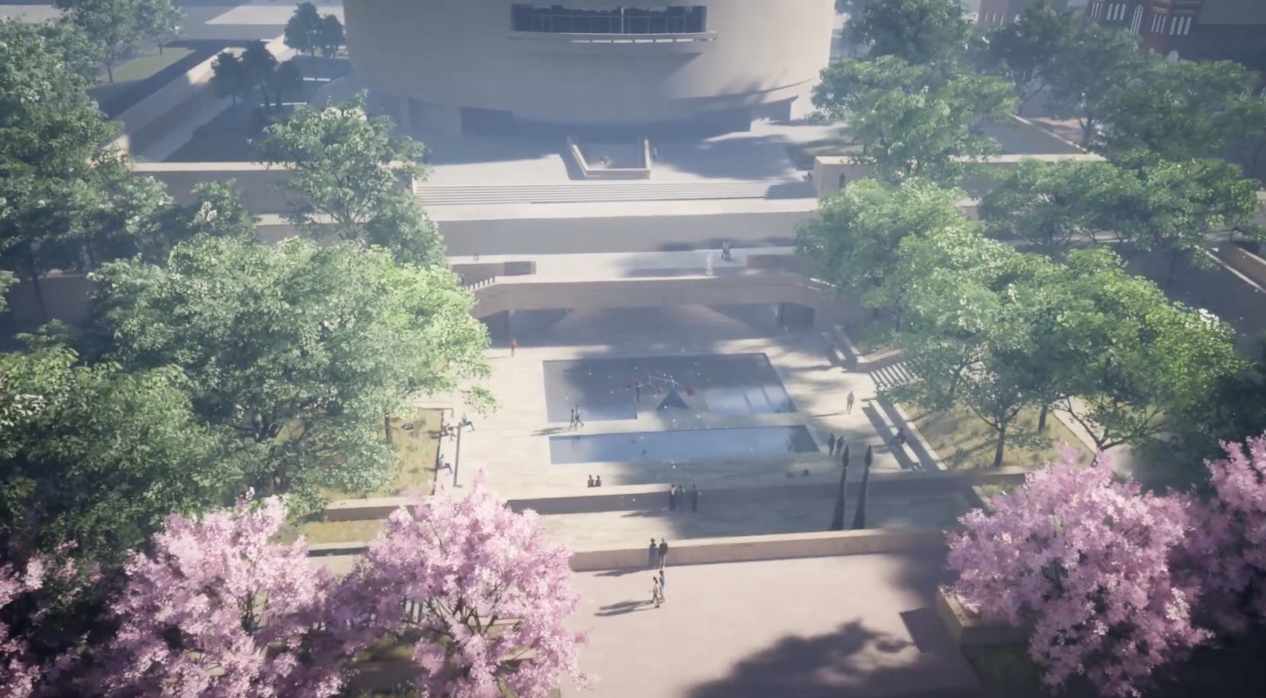(DURHAM, N.C.)—Just before Thanksgiving, 16-year-old Reginald “Reggie” Cecil Parker was shot and killed at McDougald Terrace, a Durham public housing community. Parker’s death was another loss in a community where gun violence has remained a constant presence. After the shooting, “Long Live Reggie” was etched onto a wooden cross at the scene, alongside other mementos —part of a makeshift memorial to the teen.
Following the shooting, Sheryl Smith, an activist for safer Durham streets who lost her son, Todd, to gun violence in 2005, told ABC 11 that “another mother with this pain that myself and others have been fighting for years” now carries the burden. “You got to remember the days your child was taken from you. When the incident happened. Then you got to remember, you gotta go through the holidays,” she said.
Reggie’s killing was the latest in a seemingly endless string of tragedies in this North Carolina city. According to recent shooting data from the Durham Police Department, there have been 700 shootings in Durham this year through November. Thirty -seven of those, including the shooting that killed Reggie, were fatal.

McDougald Terrace in Durham, N.C. near the site where Reggie Parker was killed in November. [Credit: Open Durham’s creator, Gary Kueber, in April 2012]
After Reggie’s death, some neighbors advocated for a new technology called ShotSpotter, a gunshot detection system that helps police identify where gun violence is occurring in real time. McDougald Terrace resident Laura Betye, who said she heard the shots that killed Reggie, told WRAL news, she thinks that the technology could make a difference. “There will be other incidents while we’re waiting for people to debate the effectiveness, the legality…and people will die,” she said the day of the shooting.
How ShotSpotter works
ShotSpotter relies on acoustic sensors placed in various neighborhoods to detect and triangulate gunshots. The system is wirelessly connected to ShotSpotter’s centralized, cloud-based application, according to an FAQ posted on its website. An algorithm identifies the severity of the event and is confirmed by staff in one of ShotSpotter’s “incident review centers,” which operate around-the-clock. In a “process that takes less than 60 seconds,” the website says that local law enforcement are notified of the severity of the incident including the type of weapon, number of shooters, and location.
This past summer, the Durham Police Department prepared to introduce the gunshot detection technology to the city, after it had been implemented in several other North Carolina cities. In September, the City of Durham hosted at St. Joseph’s AME Church the first of several scheduled community forums to discuss concerns and answer questions about the proposed contract the city’s police department hoped to finalize with ShotSpotter. The discussion was led by ShotSpotter CEO Ralph Clark and Durham Mayor Pro Tem Mark-Anthony Middleton.
Some Durham residents are skeptical of its effectiveness and whether the sensors will interfere with or infringe on residents’ privacy. Use of the technology raises pointed questions about law enforcement and how communities are surveilled.
Reason for skepticism
In 2016, the Charlotte-Mecklenburg Police Department (CMPD) decided not to renew its $160,000 contract with ShotSpotter finding that the expense was not justified. According to a memo from the office of the city manager, the police department determined that the technology, installed in 2012, did not improve its ability to identify crime victims or make arrests related to gun violence.
It’s straight up not going to be effective …It’s going to be a waste of money that could be better spent on social programs, additional social workers, or officers. —Durham resident Michael Smith
Additionally, “the system operated as intended but the department did not feel results were worth the cost.” Prosecutions of those who fired the weapons were also unsuccessful. Clark, ShotSpotter’s CEO, spoke with WBTV following the city’s decision not to renew and expressed concerns that “the department was defining success in the wrong way.” Sensors were placed in already safer towns in the area, he said, thus leading to less than satisfactory results.
A report from the Inspector General for the City of Chicago in 2021 also found significant issues with the implementation of ShotSpotter following years of critical investigations into the surveillance technology. The report concluded that the Chicago Police Department’s response to ShotSpotter alerts rarely produced documented evidence of a gun-related crime. It also said that the technology changed the way CPD perceived and interacted with individuals in the areas where the alerts were more frequent.
The Inspector General shared investigatory stop reports (ISRs) that documented the outcomes of confirmed ShotSpotter alerts for the city’s police department. What they found was fewer than 20% of investigatory stops following a ShotSpotter alert resulted in the recovery of a gun. These numbers did not include any arrests that were not associated with ISRs matched to a ShotSpotter alert, according to the report.
Increased police workload and flawed evidence

ShotSpotter CEO Ralph Clark at New America’s Law and Order Circa 2050 event in 2016 [Credit: Flickr]
There is also the issue of insufficient and flawed evidence, as was the case with an Illinois man who was accused of killing another man and spent nearly a year in prison for it. His case was dismissed after a judge found the security video and surveillance microphones used as evidence against him to be insufficient. The AP reported on the story and the use of gunshot detection technology, like ShotSpotter, and found a number of serious flaws in using ShotSpotter as evidentiary support for prosecutors. Its review of internal documents, emails, and confidential contracts revealed the flaws in using ShotSpotter and similar technology as evidence in court, including how the technology “miss live gunfire right under its microphones, or misclassify the sounds of fireworks or cars backfiring as gunshots.”
ShotSpotter says the system works
Data on ShotSpotter’s website claims the technology reduced gun violence and homicides in Greenville, N.C. in 2019, as well as in Albuquerque, N.M., and Oakland, Calf. Asked for a response to criticism of its technology, ShotSpotter provided with the following statement:
“According to the Brookings Institution, more than 80% of gunfire incidents go unreported to 911. ShotSpotter is an acoustic gunshot detection system that fills that data gap by alerting police of virtually all gunfire in a city’s ShotSpotter coverage area within 60 seconds. With a growing list of over 135 cities using ShotSpotter and a 99% renewal rate, we’re confident that our technology will help make communities safer by enabling a faster, more precise police response to gunshot incidents than 911 to help save the lives of victims and find critical evidence,” the statement reads, continuing, “The ShotSpotter system is highly accurate, with a 97% accuracy rate for detections across all police department customers for the last three years as independently verified by data analytics firm Edgeworth Analytics. Cities that use ShotSpotter report that they have consistently found gunshot victims when no one calls 911. For example, Oakland police reported that in 2020 they were able to find and coordinate immediate medical response to 101 surviving victims found. Pittsburgh announced that ShotSpotter was the only reporting mechanism to first responders for 13 shooting victims whose lives they saved in a two-year span. And West Palm Beach, FL was recognized by the US Conference of Mayors for its partnership with ShotSpotter to save the lives of its residents.”

Results from the ShotSpotter report from Inspector General for The City of Chicago [Credit: OIG]
Where Durham goes from here
As the adoption of ShotSpotter is worked out, Durham residents are thinking about the problem of gun violence and what those outside the city get wrong about their community. Michael Smith was born and raised in Durham and says his concerns are many.
“It’s straight up not going to be effective,” he told The Click. “It’s going to be a waste of money that could be better spent on social programs, additional social workers, or officers.” Smith isn’t alone in those sentiments, as other residents voiced similar concerns.
Scott Richie moved to the Durham-Chapel Hill area in 1993 and says the deployment of ShotSpotter goes too far. “I find the deployment and installation to be mostly for show and founded in racist/classist ideology and pathological classism,” he told The Click. “The neighborhoods that are represented in its deployment are predominantly lower income.”
Spectrum News 1 reported that several other cities in North Carolina use ShotSpotter including Wilmington, Winston-Salem, Goldsboro and Rocky Mount. With the last scheduled community forum wrapped up, officials find themselves in a tough position. According to ABC 11, on Nov. 14, all but two of the seven council members voted yes for the $197,500 year-long pilot program.
The News and Observer reported in November that the City of Durham delayed the implementation of ShotSpotter for a third time, despite it being first slated for a September release. Installations are cited as to blame for the latest delay, as the city’s police department is still going through the process, Police Chief Patrice Andrews said in an interview. Specific details about installations have not been revealed but the process involves placing sensors across the city. Back in September, Durham Public Schools voted against placing the technology on campuses.
During a City council meeting following its third quarter crime report, Durham mayor Elaine O’Neal mentioned Reggie’s shooting death the week before Thanksgiving. “We had a 16-year-old killed, and I know his mother and his stepfather…that is not going to be solved by a police officer. That is not going to be solved by seven members of council either. But it is a solvable problem, and I want folks to realize that Thanksgiving for a lot of folks is just another day to survive.” O’Neal was vocal in her support of a trial run of ShotSpotter during a city council meeting in March.
Other residents responded to a survey on the public response to ShotSpotter anonymously, with one respondent saying, “It’s not like Durham signed a lifetime contract with ShotSpotter. Try it. See if anything good comes from it.”
As residents debate the best approach, reports out of Durham confirmed another shooting death in the first week of December. This time three men were shot—one fatally, and two others injured. It’s a stark reminder of the backdrop that is gun violence as solutions continue to be deliberated at length.


